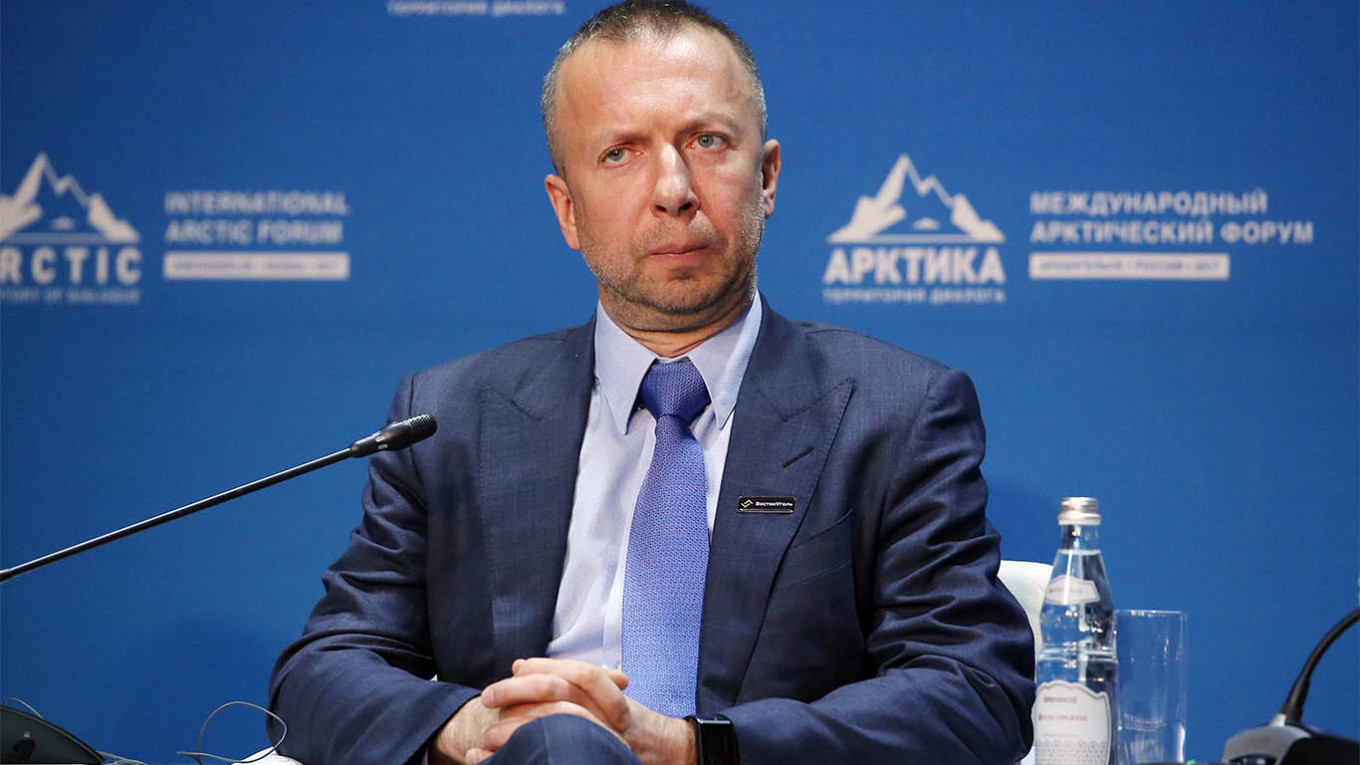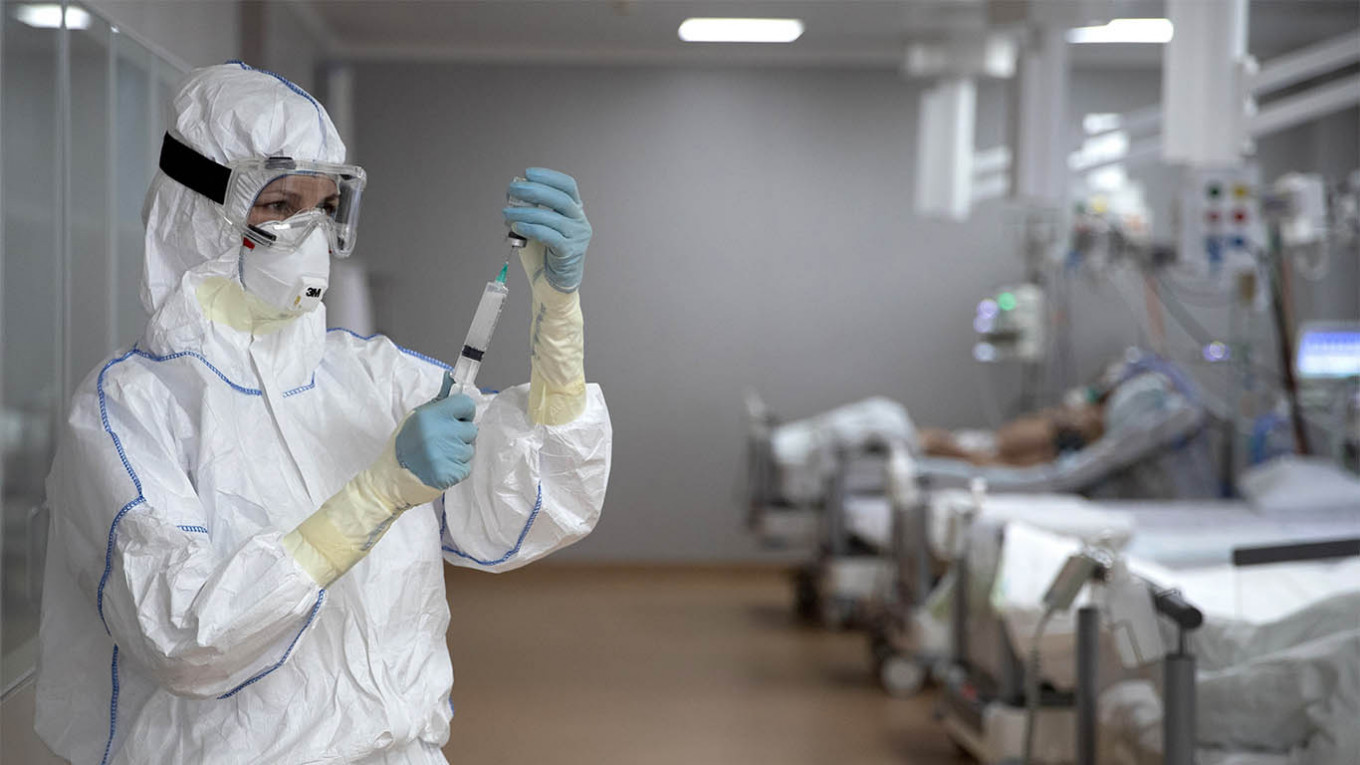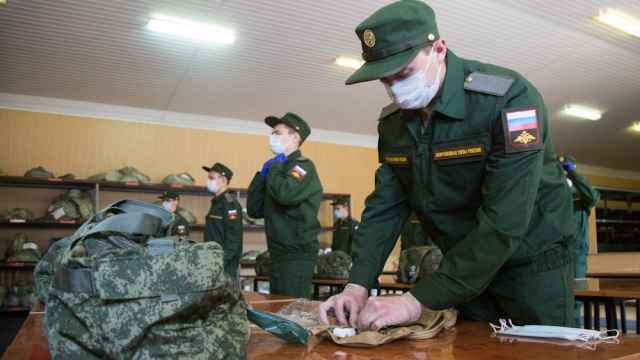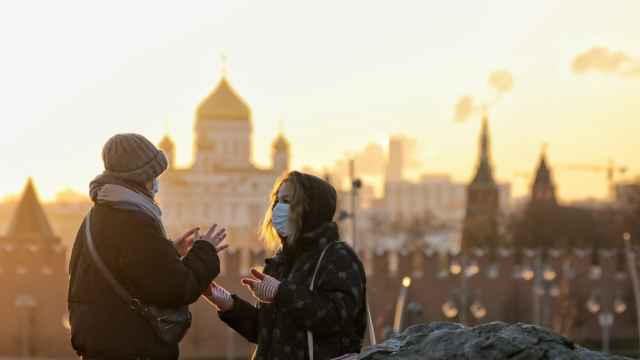The controversy over the drug hydroxychloroquine or chloroquine — made famous during the pandemic by U.S. President Donald Trump — came to a head last week after the World Health Organization suspended a multinational trial into its effectiveness in treating Covid-19 patients.
Shortly after, Belgium, France and Italy — three of the countries hardest hit by the coronavirus — halted the use of the medication commonly used against malaria, lupus and severe arthritis in treating Covid-19.
The moves were prompted after a study published in the medical journal The Lancet on May 22 found that coronavirus patients treated with hydroxychloroquine were more likely to develop heart complications and were dying at higher rates than other Covid-19 patients.
But Russia — along with Nigeria and Spain, among other countries — has stood by its use of the drug, which the Health Ministry recommends as both a treatment for coronavirus patients and a preventative measure for the over-60s and anyone who has been in contact with the virus or spends time around patients.
On Thursday, the Health Ministry said it is finalizing the latest version of its guidelines for the diagnosis, prevention and treatment of Covid-19, which will now include criteria to help doctors assess the benefits and risks of using hydroxychloroquine.
“Domestic experience indicates the validity of the use of hydroxychloroquine when it is prescribed in certain groups of patients with COVID-19 in low doses,” the Health Ministry said.
Not all of Russia’s medical experts agree.
“We should abolish the use of this tool to combat the coronavirus in Russia,” Vadim Pokrovsky, head of the Federal Center for Fighting AIDS, told the online Gazeta.ru outlet last Tuesday.
The expert, who has years of experience using experimental drugs in treating confounding diseases, explained that the anti-inflammatory effects researchers had banked on hadn’t panned out, while the negative side effects outweighed any benefits.
In interviews with over a dozen medical professionals working with coronavirus patients around Russia, The Moscow Times found that many — including entire hospitals — agree with Pokrovsky and are ignoring official guidelines.
After the Lancet study was published, First Moscow State Medical University’s Clinical Hospital no. 2 stopped prescribing hydroxychloroquine for both patients and its medical workers, said a nurse at the hospital who asked for anonymity.
“Usually you have to follow the country guidelines,” the nurse said. “But in a case like the coronavirus, the hospital’s clinical pharmacologist can adjust the recommendations based on the latest research.”
Hydroxychloroquine first
Early on in the pandemic, Russia marked out hydroxychloroquine as an effective tool for fighting the coronavirus.
As early as March, Alexander Myasnikov, the doctor who would become Russia’s coronavirus information chief, was recommending that patients take the drug.
Then, in early April, BBC Russia reported that doctors treating coronavirus patients were being forced to test hydroxychloroquine on themselves.
By April 17, Russia had authorized hospitals to use the drug in the fight against the contagion. That same day it received a large shipment from China, while five days later the pharmaceutical company Biocom announced it would produce 170,000 packs of the medicine.
Hydroxychloroquine was also backed by Denis Protsenko, the head doctor of Moscow’s main coronavirus hospital Kommunarka. In a Facebook post on May 5, he advocated using experimental medications during the pandemic.
“If we can use a number of medicines (hydroxychloroquine) based on the experience of foreign colleagues who experienced the epidemic before us, why can’t we use other [drugs] the same way?” Protsenko wrote.
In line with that thinking, on Monday, Reuters reported that Russia had registered an antiviral drug under the name Avifavir to be used from June 11 in the treatment of the coronavirus. While Japan developed the drug, it has yet to approve it.
Recovered patients have said they took hydroxychloroquine on Protsenko’s advice, while a nurse who worked at Kommunarka until mid-April said that during those weeks doctors administered the medication to “every patient.” The nurse, who now works at First Moscow State Medical University’s Clinical Hospital no. 2, said she now “rarely encounters” the drug.
Just a week after Protsenko’s Facebook post, Andrei Zaytsev, the chief pulmonologist for the Defense Ministry, ruled out the use of hydroxychloroquine in his own Facebook post.
“Our already low expectations regarding the possibilities of ‘antiviral therapy’ using lopinavir/ritonavir” — normally used for treating HIV — “and hydroxychloroquine did not materialize,” he wrote.
While the consensus seems to be shifting, official guidelines are causing confusion.
On May 5, Alexander Pishalnikov, a 52-year-old Moscow municipal deputy, checked into a city hospital in bad shape.
His doctor administered two experimental medications — one was lopinavir/ritonavir, the other hydroxychloroquine.
But after three days, the doctor decided Pishalnikov should stop taking the drugs as blood analyses had shown a negative effect on his liver.
“And anyway,” Pishalnikov, who is now back at home recovering, recalled last week, “my doctor told me plaquenil” — a common brand name drug for hydroxychloroquine — “was already shown to be useless in treating coronavirus patients, so there was no harm in stopping.”
‘They feed us with it’
Medical professionals working with coronavirus patients all over Russia, however, told The Moscow Times they are still being given hydroxychloroquine as a preventative medicine. Almost all said they and their co-workers don’t actually take it.
“They feed us with it,” said a paramedic based in Syktyvkar, a city in the northern Komi Republic, asking not to be named. “We don’t take it of course. It’s useless.”
Some medical workers, though, have tried it.
A nurse who became infected with the coronavirus in April while working with patients at Moscow’s veterans’ hospital no. 3 took the drug while on sick leave in the hopes it would help her recover.
“I wouldn’t recommend it,” she said. “The side effects were bad and I didn’t see any benefits from it. It hits the liver and heart, and you get head and muscle pains.”
But if the drug is going to waste on the coronavirus fight, Russian lupus and arthritis patients — as in the United States — are finding it difficult to source their medication.
Polina Pchelnikova, head of the rheumatological association Nadezhda — or Hope — told the U.S.-funded Radio Free Europe/Radio Liberty news outlet that a recent survey by the organization showed 57% of such patients were having trouble finding the drug.
One nurse at Kommunarka, asking for anonymity, told The Moscow Times that they are using their position to help a friend with lupus in the annexed Crimea peninsula. Because the hospital has so much hydroxychloroquine in stock, the nurse took some home and shipped it south.
Murky suicide
There is another negative side effect to the drug.
“Hydroxychloroquine may cause some people to be agitated, irritable, or display other abnormal behaviors,” U.S. medical center the Mayo Clinic writes. “It may also cause some people to have suicidal thoughts and tendencies, or to become more depressed.”
In 2016, Spanish doctors also found that the drug could lead to suicide.
Asking to speak anonymously because they were not authorized to speak on the subject, a researcher at the suicide department of the Moscow Psychiatric Science Institute said the department has been tracking the possibility during Russia’s outbreak.
“We haven’t seen anything of the like yet,” the researcher said.

One case, however, has raised suspicions.
On May 6, Russian billionaire and coal baron Dmitry Bosov died by suicide at his home in the elite Moscow suburb of Rublyovka.
At the time, one close friend told Forbes Russia that Bosov had become paranoid over the pandemic and “for nearly two months locked himself in his house on Rublyovka and didn’t see anyone.”
Bosov was also active in helping combat the pandemic through his Day One Foundation, the friend recalled. In April, the foundation gave Italy’s ambassador to Russia 10,000 packets of hydroxychloroquine to send to Italy.
“He only talked to friends by phone and all the time yelled, ‘sit at home or you’ll die,’” the friend recalled.
While an investigation is still pending into the reason for his death, two close friends of the deceased billionaire told The Moscow Times last week that Bosov had been taking hydroxychloroquine before his death.
“I talked to him a week before the suicide. He said that he was taking hydroxychloroquine as a preventative measure against the virus,” said one of the friends, who is a medical professional. “I told him that is a bad idea as it only helps during the early stages of infection. I believe the drug, together with the isolation, led to psychosis and his suicide.”
A Message from The Moscow Times:
Dear readers,
We are facing unprecedented challenges. Russia's Prosecutor General's Office has designated The Moscow Times as an "undesirable" organization, criminalizing our work and putting our staff at risk of prosecution. This follows our earlier unjust labeling as a "foreign agent."
These actions are direct attempts to silence independent journalism in Russia. The authorities claim our work "discredits the decisions of the Russian leadership." We see things differently: we strive to provide accurate, unbiased reporting on Russia.
We, the journalists of The Moscow Times, refuse to be silenced. But to continue our work, we need your help.
Your support, no matter how small, makes a world of difference. If you can, please support us monthly starting from just $2. It's quick to set up, and every contribution makes a significant impact.
By supporting The Moscow Times, you're defending open, independent journalism in the face of repression. Thank you for standing with us.
Remind me later.








